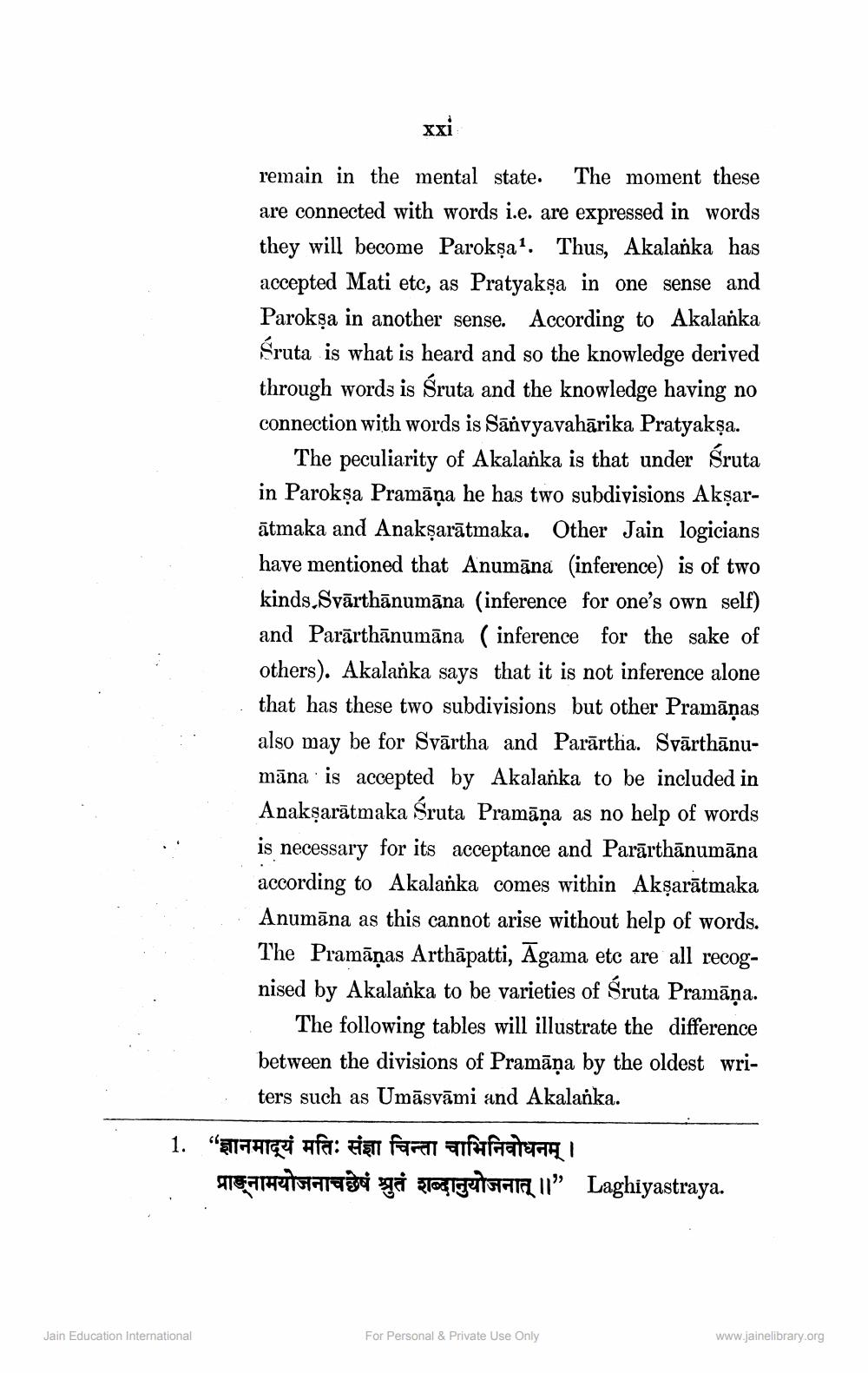________________
xxi
remain in the mental state. The moment these are connected with words i.e. are expressed in words they will become Parokṣa1. Thus, Akalanka has accepted Mati etc, as Pratyakṣa in one sense and Parokṣa in another sense. According to Akalanka Śruta is what is heard and so the knowledge derived through words is Śruta and the knowledge having no connection with words is Sanvyavahārika Pratyakṣa.
The peculiarity of Akalanka is that under Śruta in Parokṣa Pramāņa he has two subdivisions Aksaratmaka and Anakṣaratmaka. Other Jain logicians have mentioned that Anumana (inference) is of two kinds Svarthānumāna (inference for one's own self) and Pararthānumāna (inference for the sake of others). Akalanka says that it is not inference alone that has these two subdivisions but other Pramāņas also may be for Svartha and Parartha. Svarthānumāna is accepted by Akalanka to be included in Anakṣaratmaka Śruta Pramāņa as no help of words is necessary for its acceptance and Pararthānumāna according to Akalanka comes within Akṣaratmaka Anumana as this cannot arise without help of words. The Pramāņas Arthāpatti, Agama etc are all recognised by Akalanka to be varieties of Śruta Pramāṇa.
The following tables will illustrate the difference between the divisions of Pramāņa by the oldest writers such as Umāsvāmi and Akalanka.
1. “ ज्ञानमादूयं मति: संज्ञा चिन्ता चाभिनिवोधनम् । प्राङ्नामयोजनाचछेषं श्रुतं शब्दानुयोजनात् ॥ " Laghiyastraya.
Jain Education International
For Personal & Private Use Only
www.jainelibrary.org




